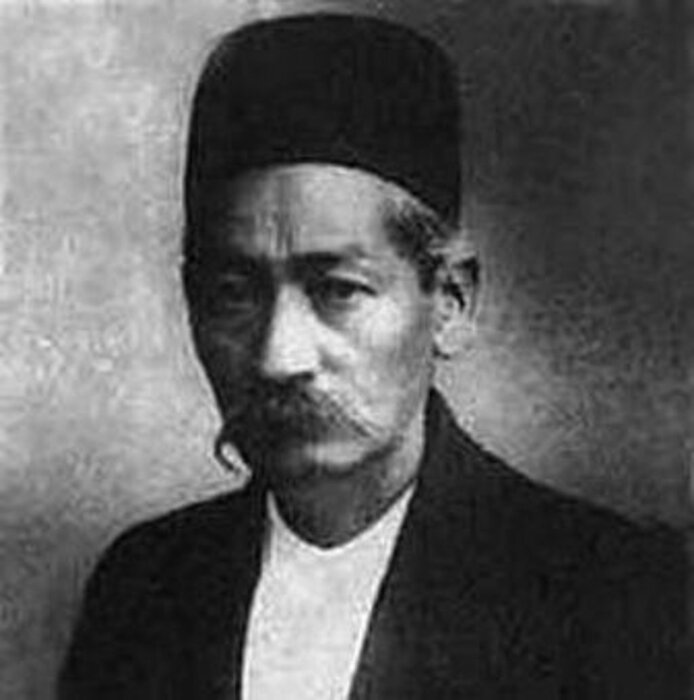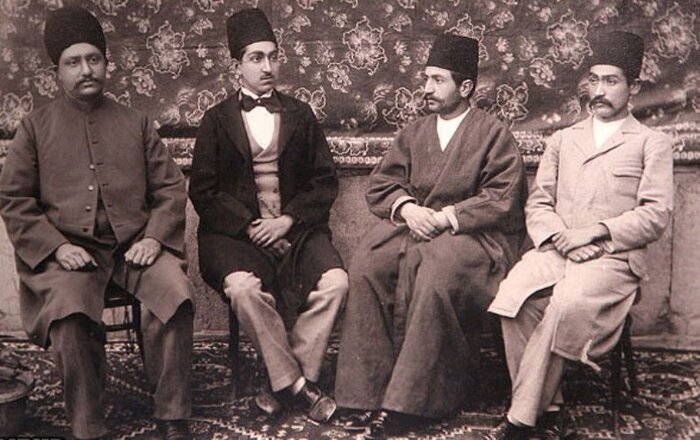IRNA - Gholam Hossein Darvish was an Iranian artist who helped bring tasnif (Persian equivalent of ballad) from the royal courts down to the ordinary people and created a very pleasant atmosphere for all Iranians, including the cultural élite. What he founded helped the Persian music to be more dynamic and not be confined to the realms of the courts.
The Persian literature is full of talk of love in this world but the art of singing tasnifs hasn’t found its true place and wasn’t for the efforts of a group of recent Iranian musicians, there wouldn’t be much to listen to.
Darvish Khan’s works have made a great contribution to this change. His masterpiece tasnif Bahar e Delkash, that has been made in the Persian classical musical mode (dastgah) of Abu Ata, is one of the best such tasnifs of the last century.
Before Darvish Khan, there were good tasnifs made by Ali Akbar Sheida and Aref Qazvini but his ballad Bahar e Delkash, made by Iranian poet Mohammad-Taqi Bahar, won over the Iranian hearts.
Darvish Khan was born in 1872 in Tehran. His father Haji Bashir Taleghani had a small shop next to manuscript illuminators, those who made cases for pens and musical instrument makers in Tehran’s Grand Bazaar. He played Sitar and sent his son to be a member of Aziz Soltan music group. Later, he attended the Dar ol-Fonoon Music School.
His father used to call him Darvish Jan instead of Gholam Hossein and made that name remain on him until he rose to fame.
He is the first and biggest Iranian composer in the Qajar Dynasty when the music was confined to the realms of the royal courts, leaving not many people who were familiar with musical notes.
He was living at a time when the call for freedom was growing louder during the governance of Qajar King Shoaossaltaneh. He sought refuge in the British Embassy at the time.
Darvish Khan can be considered the founder of professional music, taking it out from the royal courts of Qajar and bringing it to the society.
The musician had always a high value of his music and never let it be limited to anybody or any special genre. He didn’t seek much financial remuneration but personal and popular satisfaction, that’s why he held concerts for those who lost their properties in several fires in the bazar and another in the northern city of Amol.
Darvish Khan made many modifications to the Iranian musical modes and scales in a bid to make it more pleasurable to the eyes of the ordinary people of the time.
He added a sixth cord to tar in order to extend its tuning possibilities and to enhance its sound.
He is also known to have invented 'pish-daramad', a free-standing composition played at the beginning of a performance.
He is also known to have invented 'pish-daramad', a free-standing composition played at the beginning of a performance.
“Darvish Khan played well tar and sitar. His tunes were pleasurable and fingers played softly and rapidly especially he had good musical taste,” wrote Ruhollah Khaleghi in his book History of Music.
His work was important as no other musician of his time composed songs except for Ali Akbar Sheida and Aref Qazvini during the Mozaffari period before him.
He also paved the way for the creation of music that was not accompanied by tasnif or any song.
During his last year, he lived a hard life economically. He died at the age of 54, on November 22, 1926, in an accident. His carriage was hit by a lorry which was very rare at that time. It is said that he was the first Iranian to be killed in a car accident.




No comments:
Post a Comment